Netflix’s ‘The King’ star and director reveal the dangerous real conditions that made for one of the most realistic on-screen battles, ever
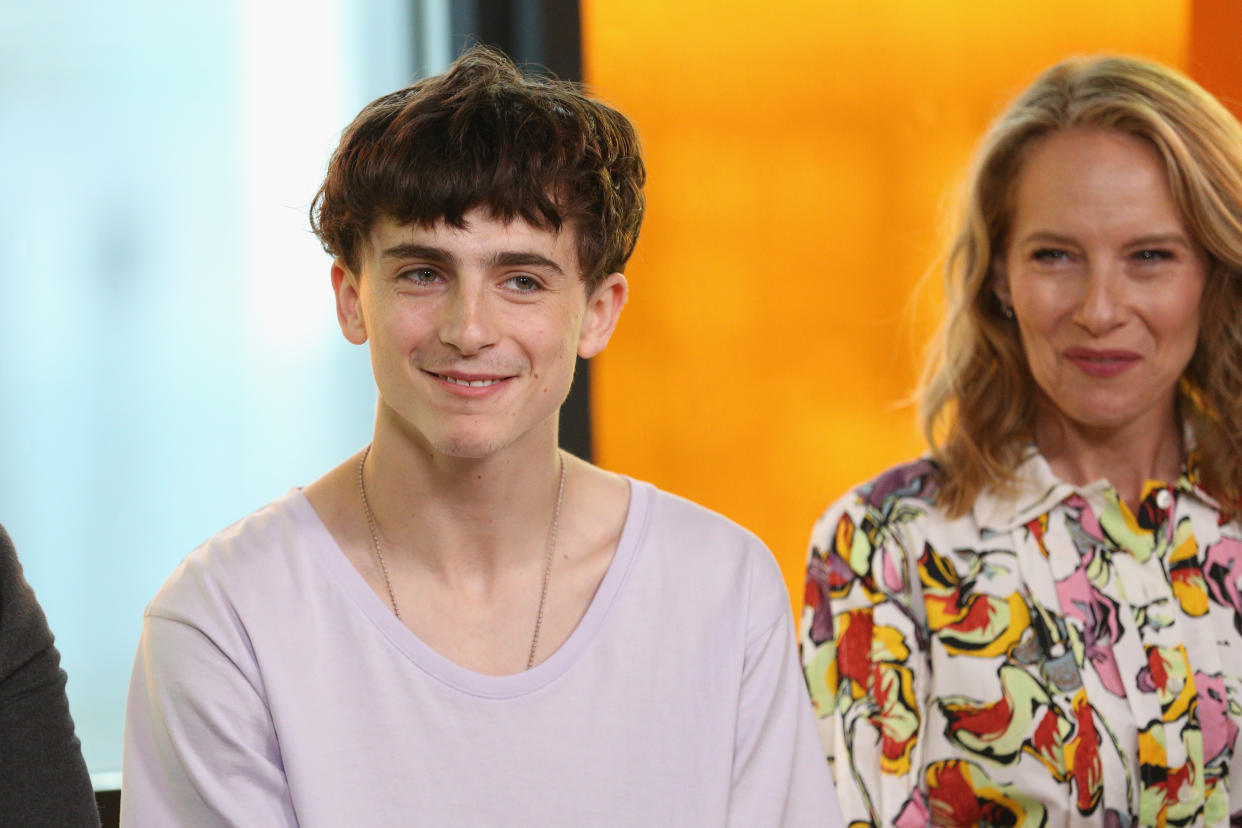
Netflix’s epic new historical drama film The King’ tells a gritty tale of war, death and duty, based on Shakespeare’s Henry IV, Parts 1 & 2 and Henry V.
It’s also famously (depending on which Twitter stan accounts you follow) the movie which Timothée Chalamet got a shocking (depending on which Instagram beauty accounts you follow) bowl cut.
Chalamet stars as King Henry V, with Joel Edgerton, who also co-wrote the screenplay, joining as soldier Falstaff, Robert Pattinson as the bonkers French royal Dauphin, Lily-Rose Depp as Henry V’s future wife Catherine, and Ben Mendelsohn as the cruel father of the Chalamet’s Hal, King Henry VI.
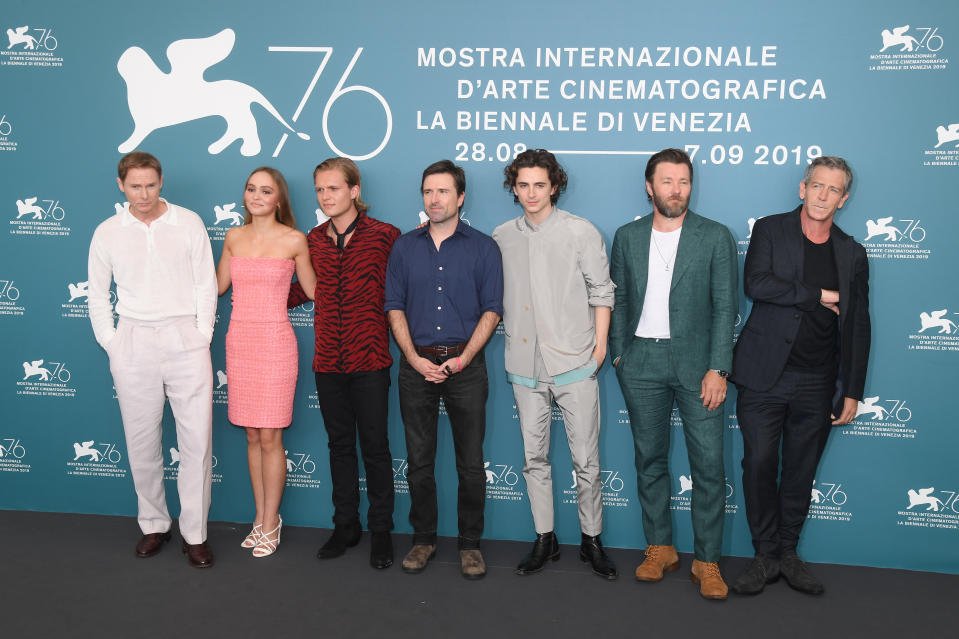
It’s a cast of favourite collaborators for critically-acclaimed Australian director David Michôd, who worked with Robert Pattinson in his 2014 western The Rover and his 2010 multi-award winning, Animal Kingdom.
The result is a drama that’s as gripping as it is grubby; the battlefields are muddy and so are the characters’ politics.
So, naturally, when director David Michôd and Ben Mendelsohn sat down with Yahoo Movies UK, they revealed all on how tough the film’s biggest battle scene was to film, filming in the UK’s most prestigious castles (and their groups of gawking tourists), and terrible, terrible haircuts.
Yahoo Movies UK: I'd like to talk about how a lot of the film was shot in the UK. Could you tell us which locations you filmed in, and what that was like?
David Michôd: We shot in the UK for a month, all over the place. It’s quite extraordinary how much medieval architecture there is here, but how little of it feels perfectly preserved: things are either in a state of ruin, or they have been futzed with, over the course of centuries. There were a few key places that we found that just felt untouched, like Hadden Hall, Barclay Castle, and Lincoln Cathedral.
The awe that they inspire is almost overwhelming. There’s something about getting up into the dirty nooks and crannies, and seeing the craftsmanship up close, and seeing how rough around the edges it is - that makes me appreciate the extraordinary endeavour that building these things must have been.
Ben Mendelsohn: I shot in Wales, and in castles. I've found from doing a few things in the UK in heritage locations, when you’re filming, they’re still running as they normally do, so we did have a lot of people through with tour groups and stopping and gawking. That's kind of that's unusual.
Yahoo Movies UK: Maybe they thought you were doing a re-enactment.
BM: I often thought that too. They probably could tell because of the scope. But I often thought, I wonder if they think we're all just part of the place, that's what we do every day.
Yahoo Movies UK: What do you enjoy about shooting in the UK?
BM: Well, in summertime, this city [London] is the greatest city on Earth. I do add the caveat ‘in summertime’. In winter time, you can get f****d!
Yahoo Movies UK: When you find those locations, how do you go about transforming them into the medieval setting we see in the film? Because obviously, like you said, a lot of them are ruins now - but they can't be ruins in the film, because in that period, they're not ruined yet…
DM: Well, the ones that are true ruins, you just discount them. It's kind of amazing to me, very often you see movies that are set in the Middle Ages, and they'll shoot in those ruins, and so you come away with the impression that kings sat on thrones in big, empty, cold, stone rooms when actually, these rooms were usually whitewashed and had ritually coloured tapestries. So it was important to us that we avoid those kind of cold, cavernous, Lord of the Rings-type spaces, because they aren't really true of the period.
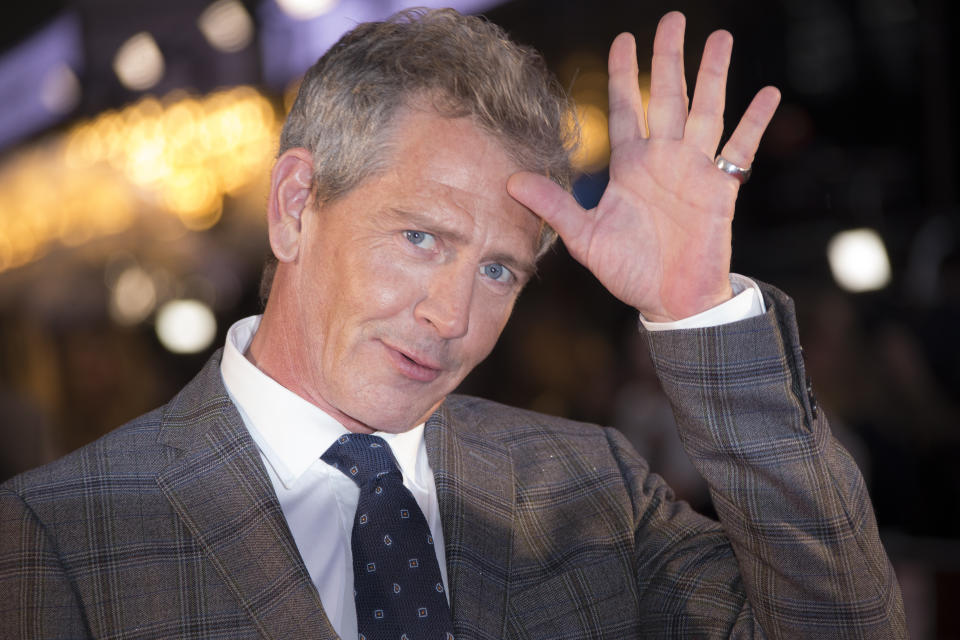
Yahoo Movies UK: We’re so used to the cliché of medieval-set films having incredibly elaborate hair and costumes, but this feels grubby, and the characters have terrible hair, and they're sick - how important was it to conjure that image? How did you create that?
DM: It was very important. One of the things that fascinated me about this world was trying to imagine what your relationship to life and death might have been, knowing that, this was a time when, for instance, the population of London was 30,000, but only 50 years earlier, it had been 90,000. Two thirds of them were wiped out in the plague. That fear of infection - that any nasty cut could have killed you: What does that do to your sense of self, your relationship to an afterlife, and your relationship with the people around you?
I wanted the thing to have, underneath it, a sense of that dirt and disease. But people died young and they fought. And so they had a very firm belief in in God, and that a better life was waiting for them on the other side.
BM: Our makeup guy, he was a f*****g genius. You you get certain of these people that are extraordinarily good at their job. He did a really good job of making me look just like a shit, just a dying old f**k. And the thing you notice, particularly in makeup, when you're working with people that are really geniuses at makeup, they use all sorts of sh*t that you wouldn't even think of.
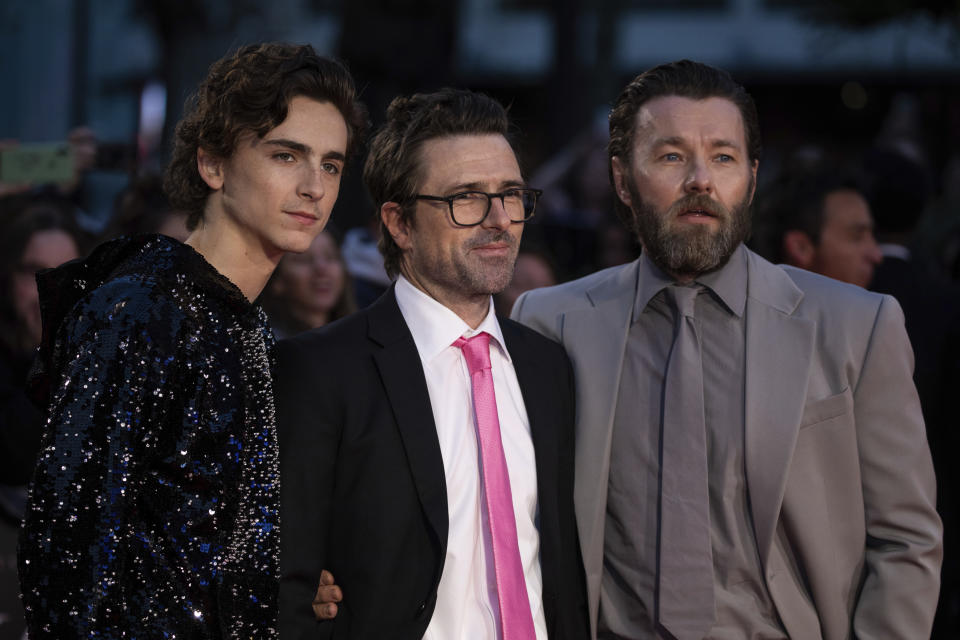
Yahoo Movies UK: The film’s huge battle scene is amazing. What was that like to shoot?
DM: It was really, really hard - I knew it would be. We didn't have the luxury of endless weeks to shoot it, so we needed to prep it properly, so that the machine would move efficiently. But, you throw 300 extras, and horses, and all the equipment on to a stinking hot field in Hungary, and almost immediately, the preparation flies out the window. But at least you know what you're aiming for. And then it becomes about just moving fast and trying not to kill people.
Yahoo Movies UK: Was it that dangerous?
DM: It is dangerous. It's a bunch of people wearing heavy costume, and helmets that are difficult to see through, swinging swords at each other in the heat, slipping around in the mud. And it's scary to shoot because between every action and cut, I'm sitting behind the monitor, hoping that I'm shooting what I need, but also really genuinely hoping that no one gets hurt.
Yahoo Movies UK: And was anyone hurt?
DM: People are getting hurt every day. But fortunately, no one was hurt seriously.
Yahoo Movies UK: How long did that take to shoot?
DM: We did it in two weeks, which, on the one hand wasn’t nearly enough. And on the other, felt like an eternity. I couldn't wait for it to end.
Yahoo Movies UK: Did you look at any battles from other film and TV for research, did any other works in particular inspire the battle scene?
DM: No - I had a look at battles in other movies looking for inspiration, but also looking for what not to do. Eventually, it became about returning to the writing. Joel [Edgerton] and I were very deliberate in wanting to write the battle as a followable story itself. One of the things that was most important to us was that the various chapters of that battle have points of view, they have a narrative or particular characters that you can follow; wanting to avoid wherever possible descending into a chaos of random shots of people smashing each other.
For me, it was important that it felt real, which meant for the most part, keeping the camera at human eye level, and keeping it tight and claustrophobic.
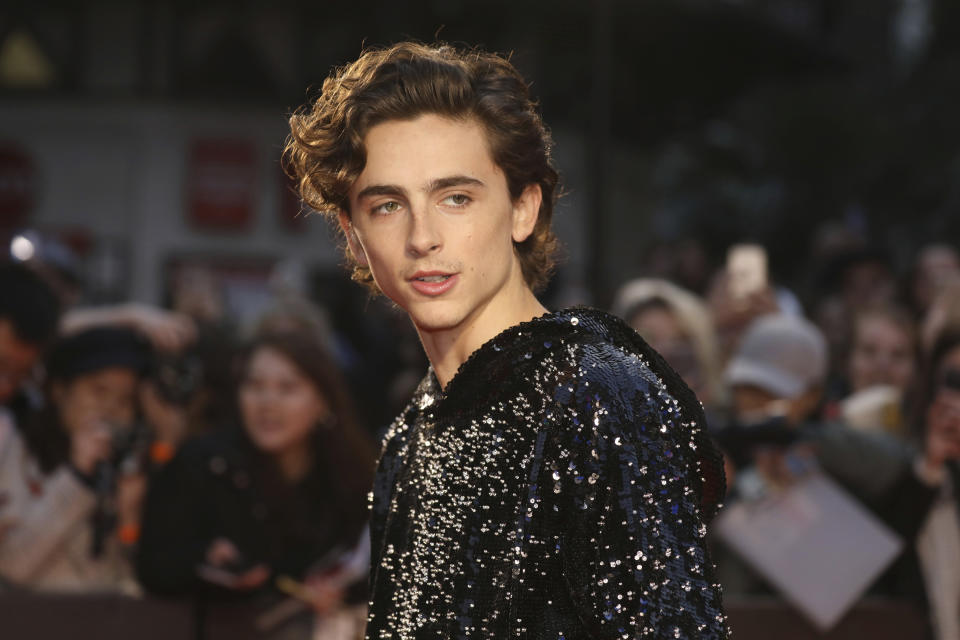
Yahoo Movies UK: When you have all those bodies piling up in the mud, it definitely feels claustrophobic…
DM: Apparently at Agincourt, most people died from either being crushed to death, or drowning in the mud. Just the very thought of that terrifies me: what would that be like?
Very often in medieval fight scenes, you’re used to seeing, even when someone's wearing a heavy suit of armour, they have a sword slashed at them, and suddenly there's a giant spray of blood and its like, where did that blood come from? That's the whole point of armour! I quite like the fact that this battle, as brutal as it is, is virtually bloodless. It's really about blunt force trauma, and, and the suffocating, desperate fight to suck in air.
Yahoo Movies UK: What was it about this medieval story that made you want to make it and what themes make it relevant for today?
BM: David Michôd made Animal Kingdom, which essentially gave me my modern career. So, when David asked me I was like, David, you gave me my whole f*****g life! I'm gonna do anything you want.
The themes really, to my mind, are about the structure of power, their idealism versus real politics. And, in the end, love. I think it's beautiful.
And it’s about war: why do we do it? Why do we still f*****g do this shit?
This guy doesn't want to be king, doesn't want to grow up, but has the best intentions and finds that he can change what he can change. I think the film is actually, in its way, quite hopeful, even though Hal gets carried along. I feel like if the film were three times as long, Hal would master a lot and come up with something much better. I basically think that's our job as humans, right? You basically pick the ball up, try and carry it forward a little bit, and then put it down. You fall over, die, and it’s the next person's turn to pick it up and go a few more feet.
DM: I really love the idea of having it be a story about a young, well-intentioned man taking on a position of great responsibility, but being consumed by the office. But in saying so, the story at its root is actually about the machine of power that cradles that office, and you see it everywhere. You see it in leaders past and present, these institutions that both stymie their noble endeavours and keep the lunatics in check.
The King is released on 1 November 2019 on Netflix

 Yahoo Movies
Yahoo Movies 
